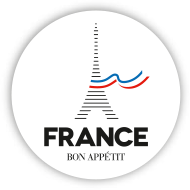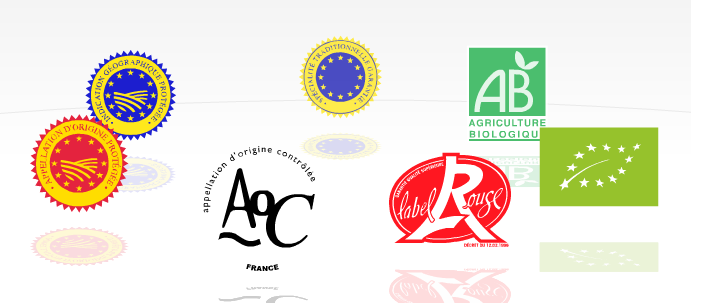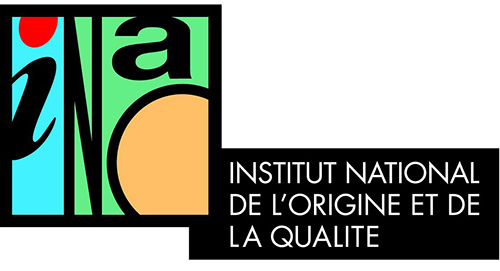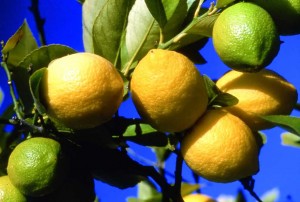
THE FRENCH
FOOD
INDUSTRY'S PORTAL
Webzine
taste it to info

80 years of the INAO: recognition on an international scale
News /
Monday 16 November 2015
For 80 years, the INAO1 , France’s National Institute for Origin and Quality, has been regulating quality signs and labels, including AOC2, PDO3, PGI4, TSG5, AB6 and Label rouge7. Countries across the world turn to seek advice from the INAO, which as a direct result has gained a reputation as an international reference.
The Comité National des Appellations d’Origine (CNAO), the precursor organisation to the INAO, was formed as a result of a French law enacted on 30 July 1935, introduced to protect the wine industry and the economics of the alcohol sector. “It was a crisis situation for wine producers in Southern France. Some were on the verge of financial ruin” recalls Jean-Luc Dairien, INAO’s managing director. Appellation d’Origine Contrôlée (AOC) was created at the same time, and its remit extended beyond the scope of wine to include agri-food products. As well as the AOC, PGI and PDO signs, INAO also governs TSG, AB (Organic products) and Label Rouge. Today, 95% of French wines and 50% of cheeses have been certified PGI or AOC.
5 different signs and labels
Under the AOC sign, INAO governs 364 wines, 49 dairy products (essentially cheeses) and 42 fruit and vegetables. PDO is the European equivalent of AOC. There are 122 PGI labels in the food sector and 74 relating to wine. TSG is a European quality standard, with only one French product, Bouchot mussels, currently qualifying for this label. There are some 26,500 organically managed farms in France, 5.6% of all French farms, which have the right to use the AB label on their products. Finally, since its inception, 500 Label Rouge applications have already been approved by the INAO.
An organisation exporting its know-how
In France and abroad, for products covered by these quality signs, the INAO protects against misrepresentation and potential reputation damage. In France specifically, the INAO is also responsible for protecting the designated areas of production. Indeed, a bill on the Future of Agriculture has determined that parties should consult the INAO on any matters relating to development, urbanisation or building works affecting a designated appellation area, or any incidences of expropriation relating to this type of area. For Jean-Luc Dairien, sustainability is a major concern. “Areas exist and develop thanks to their geographical indication”, he stresses. In search of authenticity, terroir, proximity and know-how, products assigned signs of quality and origin meet consumer needs. Today they are a guarantee of quality.
On an international level, INAO strives to teach the objectives of a quality ethos underpinned by signs of quality and origin (SIQO): providing a just response to the agricultural objectives of many countries. “Many other countries worldwide realise that it is probably in their interest to be inspired by our system for their own production. As an example, it is as a direct result of education and explanation that the Chinese Prime Minister was recently compelled to sign China’s official recognition of the Bordeaux appellation,” points out Jean-Luc Dairien. The French system has a proven track record in effectiveness and is an inspiration to other countries worldwide.
In 2014, cooperative ventures on an international scale resulted primarily in the launch of a twinning with Algeria, strengthening the system in place tasked with recognising the quality of its agricultural products. Similarly, a research poll was launched in Tokyo focusing on promoting culinary specialities and terroir-driven products. “Every year we receive dozens of requests relating to collaborative projects, partnerships, education and to participate in training programmes.” INAO supports the recognition of products in non-EU countries and does not intend to stop there. “This was already the case in Ecuador for Galapagos coffee, in Cameroon for Penja pepper, and we also want to include Maya honey in Mexico or Sharri cheese in Kosovo.”
In France, the Institute restructured two years ago in order to fulfil its remit. Now in line with other professionals who are committed to the field of origin and quality signs and labels, INAO can now look to the future with confidence. The last product recognised to date was Menton lemons, which obtained its PGI in the Official Journal of the European Union of 2 October 2015. It is the fourth French PGI to be certified since the beginning of 2015.
France’s latest recognised products in 2015:
- Menton lemons (PGI) 2 October 2015
- Lacaune ham (PGI) 27 August 2015
- Roussillon Artichokes (PGI) 31 July 2015
- Cevennes honey (PGI) 8 April 2015
Notes
- Institut National de l’Origine et de la Qualité
- AOC Controlled designation of Origin
- PDO Protected Designation of Origin
- PGI Protected Geographic Indication
- TSG Traditional Speciality Guaranteed
- AB Agriculture Biologique, Organic Label
- Label rouge (red label), sign of quality assurance
> To go further:






